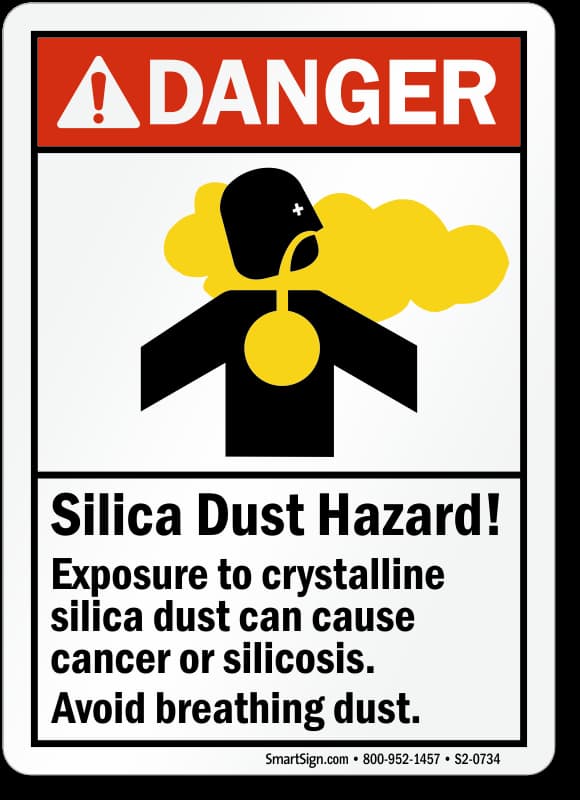What is Silica?
Silica is a mineral found in the earth’s crust. The crystalline form of silica which is called quartz has been associated with a variety of diseases primarily affecting the lung. Crystalline silica is therefore present in the aggregate added to concrete, in asphalt, bricks, concrete, concrete and terracotta tiles and pavers, in sandstone and in granite. Small amounts are present in cement. Silica can be released if using power tools to cut cement sheeting.
Download a detailed Fact Sheet on Silica (pdf) developed by Workplace Health and Safety Queensland.
Visit the Worksafe Victoria website for some thorough information on crystalline-silica >
Download the GARDS Silicosis brochure (pdf)
What is Silicosis?
Find out about Silicosis and how it effects your body.

Artificial Stone and Silicosis
The Australasian Faculty of Occupational and Environmental Medicine (AFOEM) and the Thoracic Society of Australia and New Zealand (TSANZ) is issuing an urgent call to screen and manage aggressive artificial stone lung disease affecting young tradies.
Workers across Australia are at risk of developing an aggressive, debilitating and potentially lethal respiratory disease due to unsafe work practices in the manufacture and installation of artificial stone, commonly used for kitchen, bathroom and laundry benchtops. It is imperative that medical professionals act now to identify, diagnose, manage and support at-risk workers. This alert is intended to raise awareness of the severity of the problem and garner an immediate and proportionate response from health professionals and safety regulators.
Want more information?
If you would like more detailed information about artificial stone more specifically we have included a link for you to investigate from the Australasian Faculty of Occupational and Environmental Medicine (AFOEM) and the Thoracic Society of Australia and New Zealand (TSANZ).
Read the Frequently Asked Questions about Silicosis on the The Royal Australasian College of Physicians website, or contact us and we’ll connect you with a support group.
